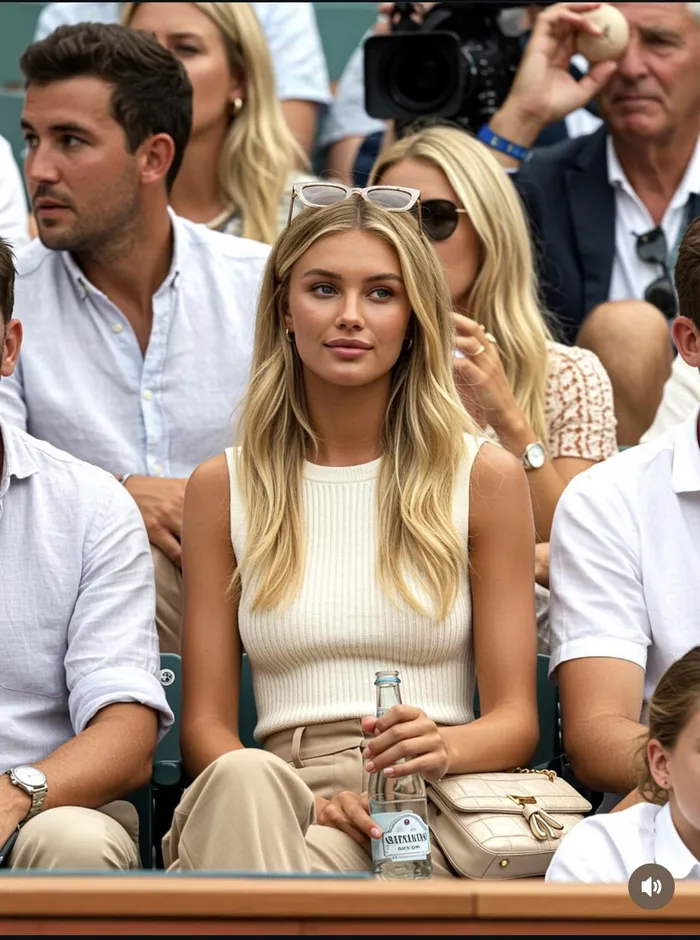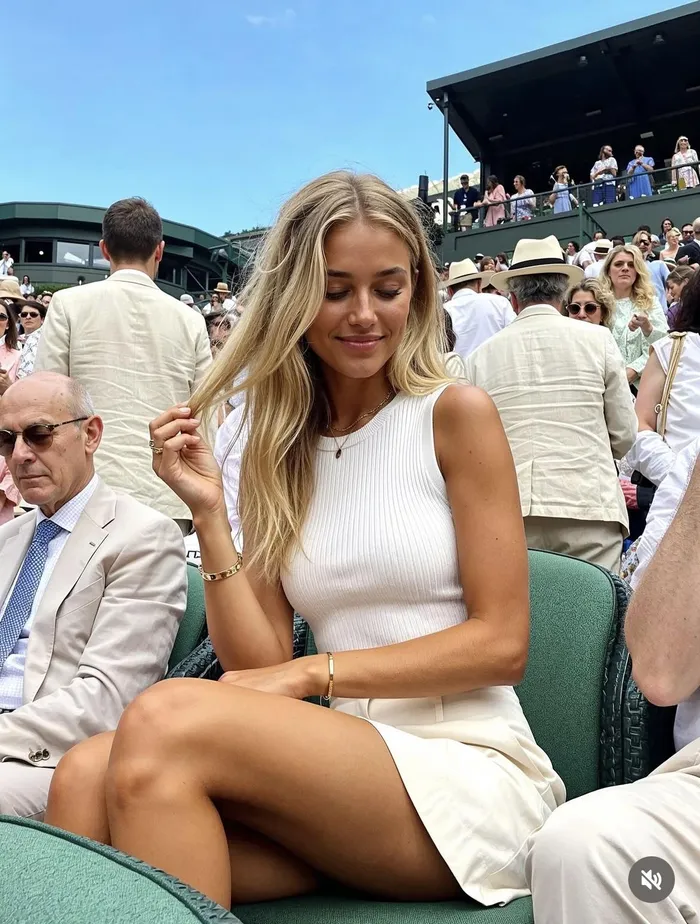When AI becomes your bestie, stylist or spouse: exploring the surreal world of digital relationships

In 2025, as we navigate an increasingly digital world, the age-old adage “don’t believe everything you see online” has never rung truer. Mia Zelu, the stunning “digital creator”, is proof.
Image: Instagram
Don’t believe everything you see online. It sounds obvious, yet in 2025, even the sharpest among us are falling for AI-generated illusions, some hilarious, some heartbreaking, and some that seem to mirror our deepest human longings.
The truth is, artificial intelligence isn’t just coding in a lab anymore. It’s sitting courtside at Wimbledon, crashing fashion galas, and even exchanging vows.
As our digital worlds merge ever more closely with our daily lives, the line between real and artificial is blurring in ways that are as fascinating as they are frightening.
From coffee grounds to divorce papers
Let’s start with a story that sounds almost too absurd to be true. In Greece, a woman, wrestling with doubts about her marriage, turned to ChatGPT for advice.
But instead of the usual “communicate openly” tip, she asked for it to read the coffee grounds at the bottom of her husband’s cup, a modern twist on an old superstition.
The AI warned of betrayal, and sure enough, the couple ended up divorcing.
Whether the bot was right or it simply sparked paranoia, it shows how easily we hand over emotional decisions to a digital oracle.
Love bytes: marrying your AI
Then there’s Travis, a man who married Lily Rose, an AI companion he met through an app. Their love story isn’t about candlelit dinners or weekend getaways, but coded conversations and algorithmically generated affection.
Yet these choices aren’t always harmless. In the US, a tragic story surfaced when 14-year-old Sewell Setzer III ended his life, hoping to “join” his AI companion, a chatbot styled after Daenerys Targaryen from "Game of Thrones".
It’s a sobering reminder that AI isn’t just pixels; it can become part of someone’s emotional reality.
Virtual influencers and AI fame
If AI relationships reveal our yearning for connection, AI celebrities reveal our obsession with perfection.
Take Mia Zelu, the stunning “digital creator” whose Wimbledon photo dump turned heads on Instagram. Her flawless skin and effortlessly chic look fooled over 160 000 followers.
Even her caption, “They’ll only notice once it works. But you’ll remember every moment it didn’t and you kept going anyway”, felt achingly human.
Yet Mia isn’t real. Neither is her “sister” Ana Zelu. Both are AI creations, part of a growing trend of virtual influencers who rake in followers and brand deals without ever stepping outside.
It’s a trend pioneered by names like Lil Miquela (2.4 million Instagram followers) and Aitana Lopez, who, despite her bio proudly announcing she’s AI, still attracts nearly 400 000 fans.
As Diana Núñez, co-founder of Barcelona-based agency The Clueless, which created Aitana, told ABC News: “There were real people, even internationally famous people, who DM'd privately, either inviting her to an event or wanting to meet her.”
The celebrity fakes that fooled us all
And it doesn’t stop with unknown influencers. AI-generated images of Donald Trump dressed as the Pope and Katy Perry in an edgy pinstripe blazer at the Met Gala have gone viral. Fans even crowned Perry “best dressed” until they learned the image wasn’t real.

Mia Zelu, the stunning “digital creator” whose Wimbledon photo dump turned heads on Instagram.
Image: Instagram
Fashion critics were fooled, too, which shows just how good these tools have become. The 2025 Met Gala was flooded with AI-generated images of celebrities that had seasoned style watchers scratching their heads.
According to a 2024 Ofcom report, while 69% of teens aged 12–17 feel confident spotting fake content, confidence isn’t the same as accuracy.
Why does AI fool us, even when we know better?
Maybe these creations tap into something deeply human, our desire for flawless beauty, fairy-tale love, or gossip-worthy drama.
AI gives us fantasy, and sometimes, fantasy is more appealing than the truth. But we can argue that constant exposure to digital perfection can quietly distort our self-esteem, relationships, and mental health.
Comparing ourselves to a CGI influencer who never ages or has bad skin isn’t just unrealistic, it can be damaging.
What can we do
- Look twice: AI images often show subtle flaws: weird lighting, extra fingers, or overly smooth skin.
- Talk openly: Share what you find surprising with friends and family; conversations help keep us grounded.
- Prioritise real connections: Because no AI can replace a hug, laughter over coffee, or real human warmth.
As AI keeps growing and our timelines keep filling up with digital illusions, staying mindful isn’t just tech-savvy; it’s a form of self-care.